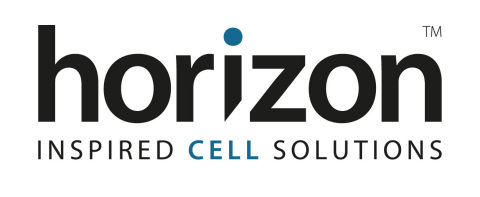Horizon Discovery to Provide Access to Novel Base Editing Technology
Horizon Discovery to Provide Access to Novel Base Editing Technology
- Next-generation gene editing system has applications in development of cell and gene therapies
- Base editing builds on CRISPR offering and will expand Horizon’s research tools and services
- Horizon seeks partners to assess and shape platform development
CAMBRIDGE, England--(BUSINESS WIRE)--Horizon Discovery Group plc (LSE: HZD) (“Horizon”, “the Company” or “the Group”), a global leader in the application of gene editing and gene modulation technologies, today announced that it will provide access to a novel base editing technology licensed from Rutgers, The State University of New Jersey, for exclusive use in therapeutic, diagnostic and services applications. This technology is incorporated into Horizon’s next-generation gene editing platform to enable the development of novel therapeutics that rely on engineering patient’s cells either directly in the body (gene therapy), or externally before transplanting back into the patient (cell therapy). This platform will also expand the Company’s research tools and service provisions.
The Company formed an exclusive partnership with Rutgers in January 2019 to further develop the novel base editing technology invented by Dr. Shengkan Jin, associate professor of pharmacology, and co-inventor Dr. Juan C. Collantes, post-doctoral research fellow at Rutgers Robert Wood Johnson Medical School, and has since been funding research in base editing at the University while undertaking its own evaluation and proof-of-concept studies. Horizon has a number of internal programs designed to accelerate the clinical uptake of this technology and is now seeking 3–5 partners to assess and shape the development of its Pin-point™ base editing platform.
Horizon will offer partners access to a novel system that could be used to progress more effective multi-gene knockout cell therapy programs through clinical development with an improved safety profile. Partners will also gain access to the Company’s expertise in genome engineering of different cell types, access to early technical data, and influence over the direction of future development.
Base editing is a novel technology for engineering DNA in cells, which the potential to correct certain errors or mutations in the DNA, or inactivate disease-causing genes. Compared with currently available gene editing methodologies such as conventional CRISPR/Cas9, which creates “cuts” in the gene that can lead to adverse or negative effects, this new technology allows for accurate gene editing while reducing unintended genomic changes that could lead to deleterious effects in patients.
Dr. Jonathan Frampton, Corporate Development Partner, Horizon Discovery, said: “The technology could have a significant impact in enabling cell therapies to be progressed through clinical trials and towards commercialization. Horizon is pleased to offer an effective and precise base editing technology and, alongside Rutgers, aims to make base editing available to all appropriate cell and gene therapy companies as well as research departments. Partnering with leading organizations will help us to drive innovation and deliver the best therapy for the patient.”
Dr. Shengkan 'Victor' Jin of Rutgers University stated: “The cytidine deaminase version of the technology alone could potentially be used for developing cell therapies such as gene modified cells for sickle cell anemia and beta thalassemia, HIV resistant cells for AIDS, over-the-shelf CAR-T cells for cancer, and MHC-compatible allogenic stem cells for transplantation. Other applications could include use as gene therapies for inherited genetic diseases including antitrypsin deficiency and Duchenne muscular dystrophy. In addition, we intend to take full advantage of the unique modularity and versatility features of Pin-point platform and develop efficient gene inactivation agents for potential treatment of many devastating diseases where the leading causal contributing factors are well defined. At the top of this disease list are Alzheimer’s disease, amyotrophic lateral sclerosis, and familial hypercholesterinemia.”
Dr. S. David Kimball, Senior Vice President for Research and Economic Development at Rutgers University, added: “The gene editing technology developed by Rutgers has the potential to revolutionize how scientists think about their search for better options and outcomes in the treatment of disease. It has the potential to solve some of the most persistent global health challenges. This partnership with Horizon Discovery is paving the way to deliver biotherapies for precision medicine and diagnostics and improve human health. I am proud that Rutgers, together with Horizon, is among the frontrunners in the field of gene editing.”
Contacts
Zyme Communications (Trade and Regional Media)
Lorna Cuddon
Tel: +44 (0)7811 996 942
Email: lorna.cuddon@zymecommunications.com
